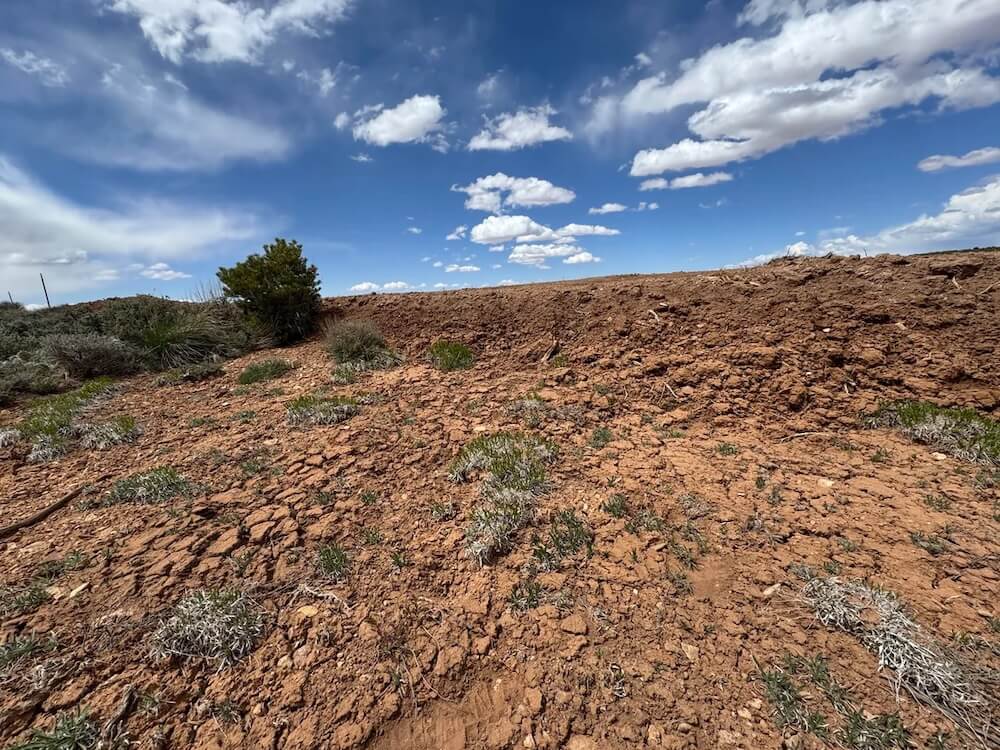A frustrated landowner turned to Reddit after discovering a noticeable change to their desert lot.
A neighbor had raised the shared property line nearly 10 inches, potentially setting the stage for drainage issues.


In a post to r/landscaping, the user explained that their neighbor had "flattened his area and built a driveway," pushing the leftover dirt all the way to the edge of the property line.
"It's already looking like a drainage issue," the user wrote. "Is this allowed? Aren't you supposed to have an easement for drainage when adding height?"
The post included photos showing a clear elevation difference between the two properties. It's understandable that the landowner is questioning this move, as in drier regions like the desert Southwest, proper grading and drainage are important. A poorly planned elevation like this could cause rainwater to pool and damage neighboring homes or land.
Reddit commenters were quick to weigh in. "As far as I can tell, you're one light rainstorm from his dirt becoming your dirt," one user wrote.
Perk up the winter blues with natural, hemp-derived gummies Camino's hemp-derived gummies naturally support balance and recovery without disrupting your routine, so you can enjoy reliable, consistent dosing without guesswork or habit-forming ingredients. Flavors like sparkling pear for social events and tropical-burst for recovery deliver a sophisticated, elevated taste experience — and orchard peach for balance offers everyday support for managing stress while staying clear-headed and elevated.
Learn more → |
Another joked, "He's got the high ground now."
This brings up bigger issues about property rights, climate resilience, and the role of good neighbors in protecting both.
As more homeowners look into sustainable features like rain gardens, permeable driveways, or native landscaping, they may face setbacks from difficult neighbors or outdated HOA rules.
That's why open communication is encouraged. Local ordinances often require grading plans and runoff protections, and thoughtful landscaping and responsible development can help prevent conflict.
TCD Picks » Upway Spotlight
💡Upway makes it easy to find discounts of up to 60% on premium e-bike brands
|
Should homeowners associations be able to determine what you grow in your garden?
Click your choice to see results and speak your mind. |
If you're facing barriers to adopting climate-friendly home solutions, a good place to start is by learning how to talk about climate with family, friends, and neighbors.
"I would always open a dialog with the neighbor before involving the local regulatory body," one person commented. "I always assume ignorance over malice initially in situations like this. If this is a new neighbor, going right to legal action without seeking an amicable solution can create a long term problem."
"If you do not want a hill, you can request a retaining wall on the property line because you do not want a hill on your side. He can put the hill on his side to not affect your property elevation," another person suggested.
Join our free newsletter for easy tips to save more and waste less, and don't miss this cool list of easy ways to help yourself while helping the planet.















